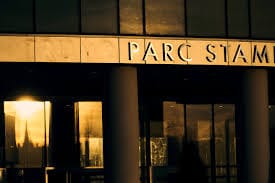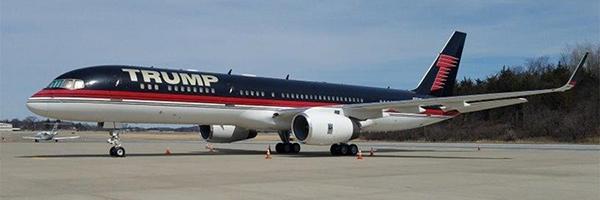
Trump’s politics hurt his businesses. Will he sell as he looks to a potential 2024 campaign?
Donald Trump’s new office is the Mar-a-Lago Club’s old bridal suite. There — exiled from Washington, avoiding New York, working from a repurposed dressing room in Florida — the former president faces a choice.
Is it time to start selling his properties?
Some of Trump’s businesses are in crisis, facing sharp drops in revenue and an exodus of clients, lenders, lawyers and business partners. Now, sharks are circling.
The Washington Post spoke with four investors who said they are exploring efforts to buy Trump’s properties or the loans he has taken out on them. They believe Trump has fatally wounded his brand — a view shared by some independent analysts — and they are hoping he will cut his losses by selling them luxe properties for cheap.
“The first thing you do is you take the Trump name off them — which, by the way, could be a multiple-week effort, because it’s on everything,” said one of the four, who spoke on the condition of anonymity because no offer has been made yet. “Once it’s gone, it’s a competitive asset.”
Selling off properties would free Trump to focus on a political revival rather than the struggle to rebuild his holdings, which now include 10 hotels, 13 clubs, about 20 name-branded office or residential towers, two ice rinks and a winery. But it may also mean giving up a key piece of his old identity — his image as a world-spanning business titan, which carried him to reality-TV fame and to the White House.
That Trump cut deals from a corner office in Manhattan. Would he now prefer practicing politics and selling red hats from a converted suite in Florida?
Trump already has indicated that he plans some kind of future in politics. On Sunday, he will make his first post-White House political appearance, with a speech at the Conservative Political Action Conference, or CPAC, in Orlando.
He has not announced a run for president in 2024 but has pointedly declined to rule it out. “We have tremendous support,” he said in an interview on the pro-Trump network One America News last week.
For now, however, Trump is a businessman again. Since he left office, his eldest sons — who ran the business while Trump was in the White House — have briefed their father extensively, according to Trump’s advisers.
But people who have spoken with Trump recently say he has shown little interest in taking back day-to-day control.
Instead, these people — who spoke on the condition of anonymity to discuss private conversations — said Trump has focused almost entirely on politics. They said he has talked about exacting revenge on his political enemies, securing more money for his political action committee and running for president again.
Trump did not respond to requests for comment for this report. His son Eric Trump issued a statement saying the family is optimistic about its future in business.
“We have an unbelievable company with some of the best and most valuable real estate assets in the world,” he said in a statement to The Post. “There is no shortage of opportunities for us in real estate and beyond. Our brand has never been stronger and we are very excited about the future.”
From the outside, it is impossible to get a full picture of the Trump Organization’s financial health. The company is private. It releases no details about its overall profits, losses or cash reserves.
The company still has properties on four continents, an ability to book GOP fundraisers, and one of the most famous names in the world. Even after the events of Jan. 6 — when a mob of the then-president’s supporters stormed the U.S. Capitol — the family still has allies and partners.
“I would welcome the opportunity of expanding our relationship with the brand,” said Hussain Sajwani, chairman of Damac Group, who is partnered with Donald Trump on a golf club in Dubai and said he would relish more deals with the former president.
But the data that is available shows that the Trump Organization is diminished — having lost revenue and properties since Trump entered politics.
The main problems appear to be the pandemic, which has hammered the hotel and resort business, and Trump’s sharply altered public image.
Industry analysts sum it up this way: Trump has a brand, and he has a business. But now, they are aimed at entirely different sets of people.
Trump’s hotels and resorts are still targeted at the clientele they attracted before Trump entered politics: wealthy, city-dwelling customers and big-time convention planners. But in the meantime, Trump’s caustic politics have alienated many of those customers — and his new, partisan fans can’t make up the difference.
“The whole [company] was built — and very well constructed, I might say — on aspiration, on luxury, on wealth. And hey, he did that real well,” said Robert Passikoff of the firm Brand Keys, who has been studying Trump as a “human brand” since the 1980s. “But now that’s not part of who he is.”
Passikoff said Trump’s brand had shifted to target a smaller, politically sympathetic audience. That may be enough to win GOP primaries, but not to fill huge hotels and golf resorts.
“It’s a political brand forever. He’s made the decision,” Passikoff said. He said that as somebody who studies brands, he was sorry to see Trump tarnish one that had such broad appeal: “It’s so hard to find human brands.”
Since Trump took office, four Trump-branded hotels have shut down. The remaining 10 hotels have been hit hard. Last year, revenue at Trump’s Washington hotel fell 60 percent, according to Trump’s last presidential disclosures. It fell 44 percent at Doral in Miami. Both properties are key to Trump’s finances, because they carry large outstanding loans from Deutsche Bank.
One of Trump’s business partners called off an attempt to sell two office buildings that Trump co-owns in San Francisco and New York, depriving Trump of a payday likely in the hundreds of millions of dollars.
Trump’s name is not on those buildings. But his role was still enough to dissuade potential buyers, according to Trump’s partner in the buildings, Steven Roth of real estate giant Vornado.
“There are some people who his presence affected. . . . Okay, that’s true,” Roth said in a call with investors, analysts and journalists before quickly adding that “it is not of sufficient issue to be of any trouble to us at all.” Roth said the buildings will be refinanced instead. That would in all likelihood prevent a large payout to Trump.
Trump also owns a 74,000-square-foot retail space near Trump Tower in Manhattan, formerly a Niketown, but Bloomberg News reported Friday that it will soon go empty.
Trump’s chain of residential buildings shrank again this month, as a building in Stamford, Conn., called Trump Parc removed the “Trump” part — leaving only the ghost of the name, shadowed in grime. Messages from the condo board, obtained by The Post, said that 75 percent of owners had voted to remove the sign after Trump’s company had abruptly decided to end its management of the building. The removal was first reported by the Stamford Advocate.
At other Trump-branded residential buildings, brokers say that property values have been dropping. In Chicago, broker Phil Skowron said the only sliver of good news has come in the past few weeks, since Trump has largely disappeared from the news.
People started asking about Trump Tower condos again, Skowron said.
“Just already since he’s been out of office, since he’s been off Twitter, it’s already started to pick up,” Skowron said. He said he thought people were willing to forget Trump’s past actions, as long as they stayed in the past and as long as Trump units were still selling at a discount. “It’s gotten so cheap there. . . . You get a 30 or 40 percent discount, that’s real money.”
Now, other investors say they believe that these problems — as well as Trump’s desire to focus on politics — may lead him to sell off large properties.
If that happened, Trump could reap hundreds of millions of dollars that he could use to pay off outstanding loans and to pay lawyers helping with a raft of investigations and lawsuits he faces.
The buyers would gain properties that — once stripped of Trump’s name — might instantly attract a broader nonpartisan audience and command higher prices. The downside could be a hit to their own public image, if it appeared they were bailing out Trump during a time of crisis.
But buyers need a seller. And so far, Trump has given no indication he will sell.
Some potential buyers have indicated interest in buying up Trump’s loans, in theory allowing them to foreclose and seize the properties if Trump ever defaulted. But a spokesman for Deutsche Bank, which owns more than $300 million in outstanding loans on the Trump properties in Washington, Miami and Chicago, declined to comment on whether the borrowing agreements allowed Deutsche to sell the loans.
For now, the former president’s online Trump Store has begun selling goods explicitly aimed at Trump’s political fans, such as $36 red hats with the number “45” on them, alluding to Trump being the 45th president, and copies of Donald Trump Jr.’s books attacking liberals. Donald Trump’s businesses had promised not to trade on the presidency while Trump was in office.
Otherwise, the company has not transitioned away from the old Trump brand — an icon of nonpartisan, filthy-rich luxury, created in a world that no longer exists.
On Jan. 1, for instance, Trump Hotels tweeted a photo of a couple — apparently meant to be Trump customers — walking from Trump’s Sikorsky helicopter, featured in the credits of “The Apprentice,” to Trump’s famous 757, the backdrop at his 2016 campaign rallies.
“Flying into 2021 in style,” the caption read.
But the brand is not the same. Nor are the aircraft.
The helicopter in the photo was recently sold, according to the broker Jet Edge Partners. The 757 in the photo is parked at an airport in exurban New Windsor, N.Y., and has not flown since July 2019, according to flight records obtained by The Washington Post. The Trump Organization did not respond to questions about the grounded plane.


